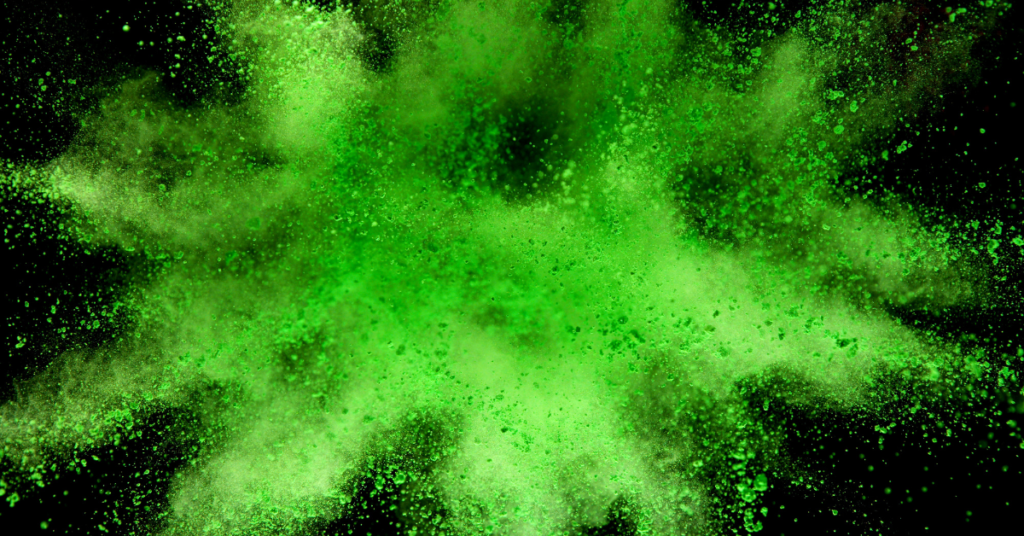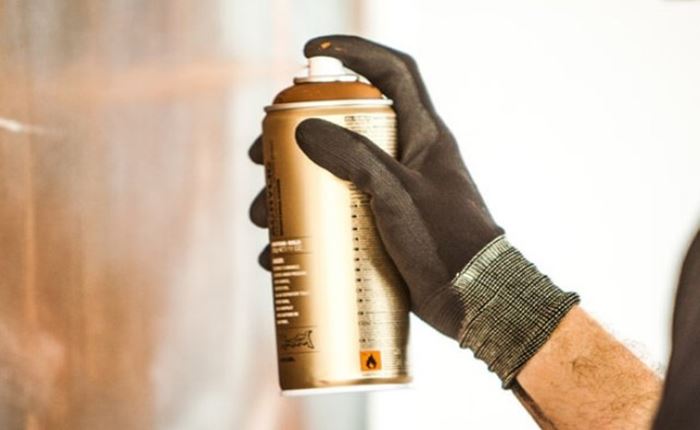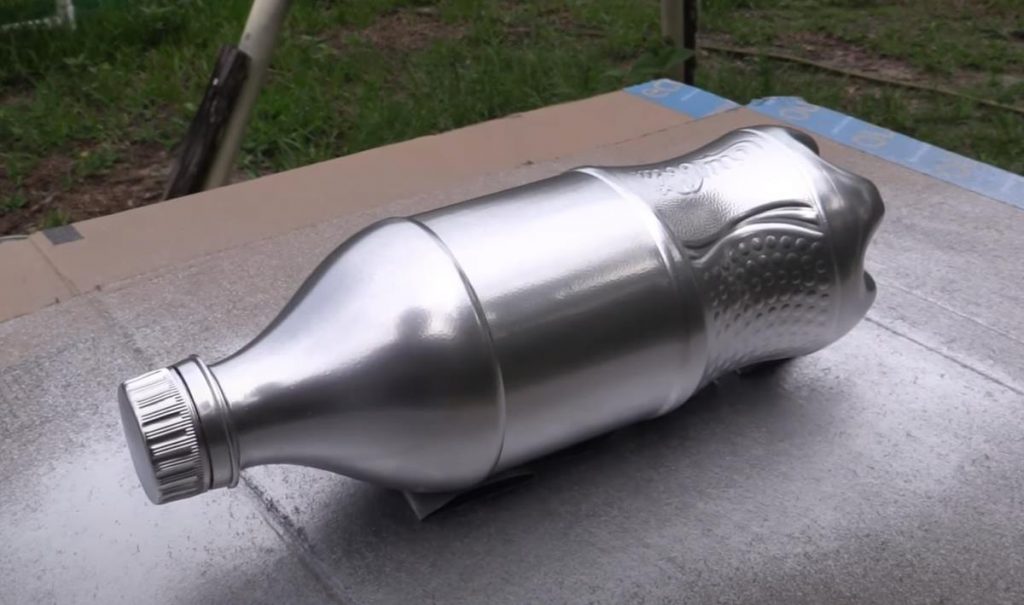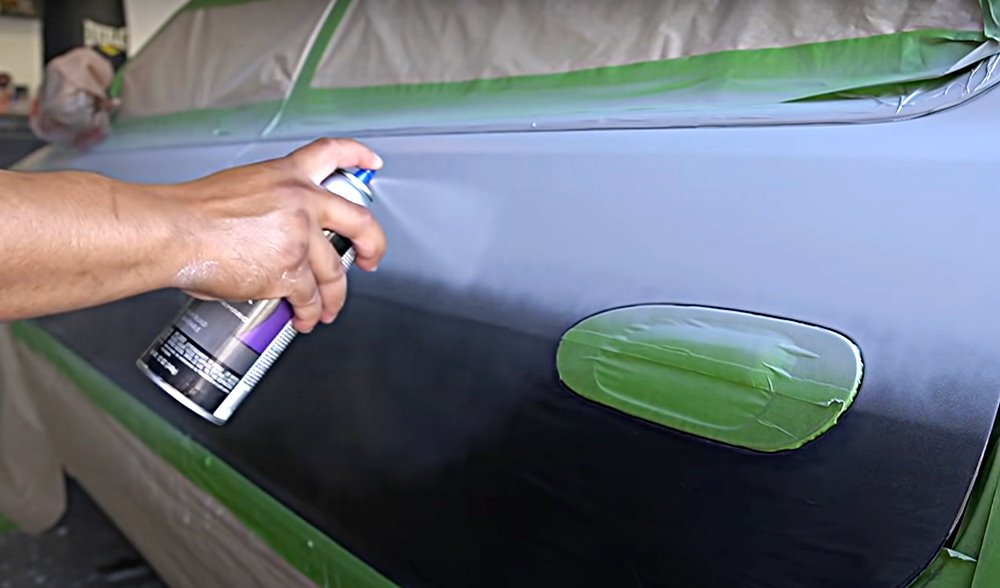Achieving complete dissipation of spray paint fumes typically requires a time frame of approximately 2 to 3 days, provided that the area benefits from effective ventilation.
Proper ventilation is crucial in expediting the removal of volatile organic compounds (VOCs) and ensuring a safe and odor-free environment.
During this period, the air circulation and exchange within the space are essential factors in expelling the lingering paint odors and harmful chemicals, ultimately resulting in a more pleasant and healthier atmosphere.

What Are Spray Paint Fumes?
Spray paint fumes are gases and particles released into the air during the spraying process. These fumes are a mixture of solvents, propellants, pigments, and other chemicals. Some of the most common chemicals found in spray paint include toluene, xylene, and benzene. Exposure to these chemicals can cause a range of health problems, from short-term irritation to long-term damage to the nervous system, liver, and kidneys.
How Long Do Spray Paint Fumes Last?
The duration for which spray paint fumes last can vary depending on several factors, including the type of paint used, ventilation, and environmental conditions. Here are some general guidelines:
1. Type of Paint
Different types of spray paint may have varying drying times and emit fumes for different durations. Some paints dry faster and produce fewer fumes, while others take longer to dry and emit fumes for a longer period.
2. Ventilation
Adequate ventilation is crucial in dissipating paint fumes. If you’re painting in a well-ventilated area with good airflow, the fumes are likely to disperse more quickly. On the other hand, if you’re painting in a confined space with poor ventilation, the fumes can linger for a longer time.
3. Temperature and Humidity
Environmental factors can influence how long spray paint fumes last. Warmer temperatures and lower humidity levels generally help paint dry faster and reduce the time that fumes linger.
4. Layer Thickness
The thickness of the paint layer can also affect drying time and the duration of fumes. Applying multiple thick coats can extend the time it takes for the paint to dry and the fumes to dissipate.
5. Type of Surface:
The surface you’re painting on can impact drying time and fume duration. Porous surfaces may absorb the paint and slow down drying, while non-porous surfaces may allow for faster drying.
6. Painting Techniques
Proper painting techniques, such as applying thin, even coats and allowing adequate drying time between coats, can help reduce fumes and drying time.
Risks of Prolonged Exposure to Spray Paint Fumes
Prolonged exposure to spray paint fumes can cause various health problems, ranging from mild irritation to serious health complications. Short-term effects may include headache, dizziness, nausea, and eye and throat irritation. Long-term exposure can lead to more severe health issues, such as respiratory problems, central nervous system damage, and organ damage.
People with preexisting conditions, such as asthma or allergies, may be more susceptible to the effects of spray paint fumes. Children, pregnant women, and the elderly should also take extra precautions to avoid exposure to these fumes.
Precautions to Take When Using Spray Paint
To minimize the risks of exposure to spray paint fumes, it’s essential to take necessary precautions when using spray paint. Here are some tips to keep in mind:
- Use spray paint in a well-ventilated area, such as outdoors or in a well-ventilated room with windows and fans.
- Wear protective gear, such as a respirator mask, gloves, and eye protection, to minimize exposure to the fumes.
- Follow the instructions on the spray paint can and avoid over-spraying to reduce the amount of fumes released into the air.
- Avoid using spray paint near open flames, heat sources, or sparks, as some spray paint products are flammable.
- Dispose of used spray paint cans in a safe and responsible manner, following the instructions on the can.
What to Do If You Experience Symptoms of Spray Paint Fume Exposure
If you experience symptoms of spray paint fume exposure, such as headache, nausea, or eye irritation, move to a well-ventilated area immediately. If symptoms persist or worsen, seek medical attention.
FAQs & answers for the above topic
Here are 5 frequently asked questions and their answers related to the topic of how long spray paint fumes last:
How long do spray paint fumes last indoors?
The duration of spray paint fumes indoors can vary depending on several factors, including the type of paint, the ventilation, and the size of the room. Generally, spray paint fumes can last for several hours to several days indoors if not properly ventilated.
Is it safe to use spray paint in a closed room?
No, it is not safe to use spray paint in a closed room as the fumes can build up and become concentrated, leading to health risks such as headaches, dizziness, and nausea. It’s important to use spray paint in a well-ventilated area, either outdoors or in a room with open windows and doors.
Can you get sick from inhaling spray paint fumes?
Yes, inhaling spray paint fumes can make you sick. Short-term exposure to spray paint fumes can cause symptoms such as headaches, dizziness, nausea, and eye, nose, and throat irritation. Prolonged exposure can lead to more serious health problems such as damage to the liver, kidneys, and nervous system.
How can I protect myself from spray paint fumes?
To protect yourself from spray paint fumes, it’s important to use spray paint in a well-ventilated area, wear a respirator mask that filters out harmful fumes, cover your skin with protective clothing, use a spray paint booth or gun designed to minimize overspray and fumes, and follow the manufacturer’s instructions for use and disposal.
How long does it take for spray paint fumes to dissipate outdoors?
The duration of spray paint fumes outdoors can vary depending on the weather, the amount of airflow, and the type of paint used. Generally, spray paint fumes can dissipate within a few hours to a day outdoors due to the increased airflow and ventilation. However, it’s still important to use caution and take necessary precautions to avoid inhaling harmful fumes.
Conclusion
Spray paint fumes can be harmful to human health if proper precautions are not taken. Understanding how long spray paint fumes can last and the potential risks associated with prolonged exposure is crucial for your safety. By following the precautions outlined above, you can minimize your exposure to spray paint fumes and protect your health.


